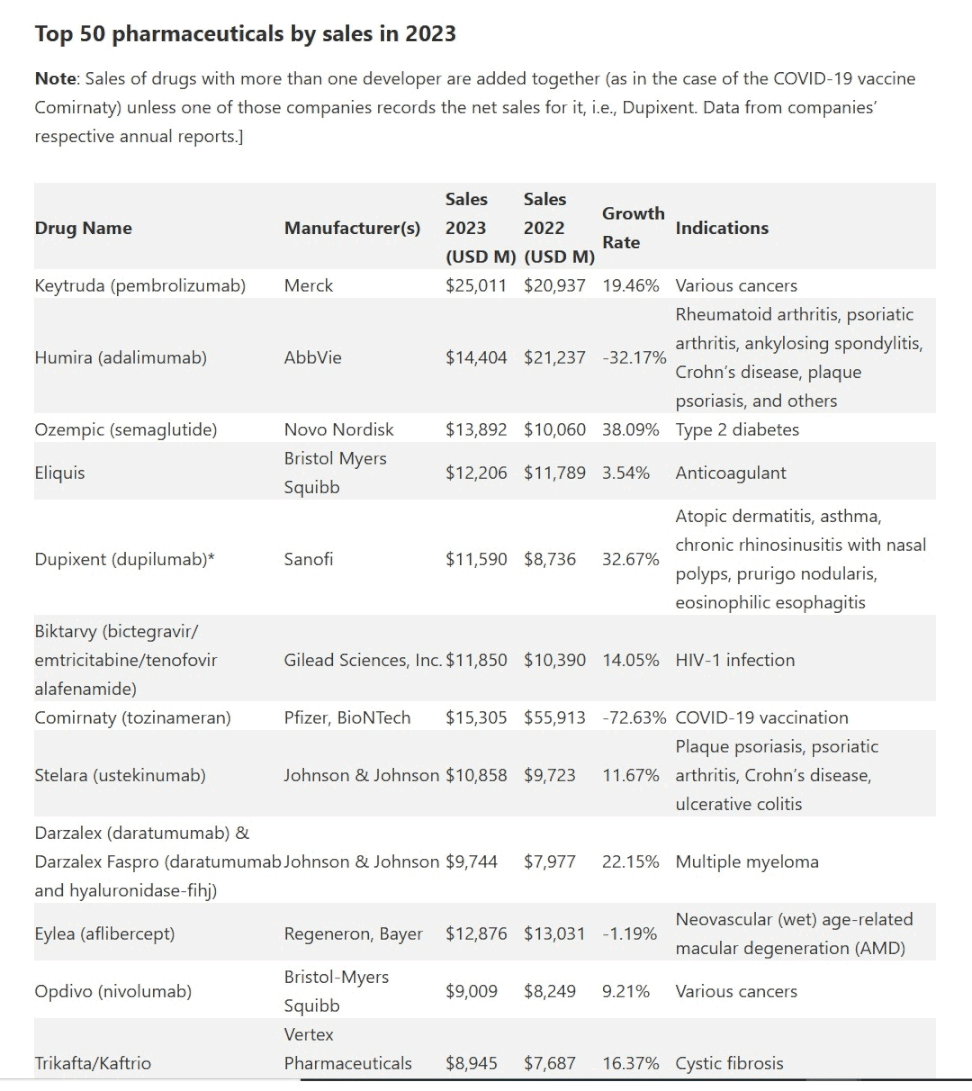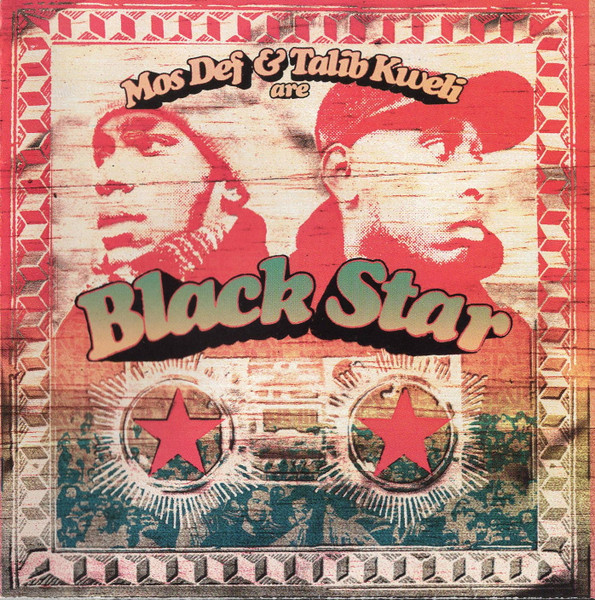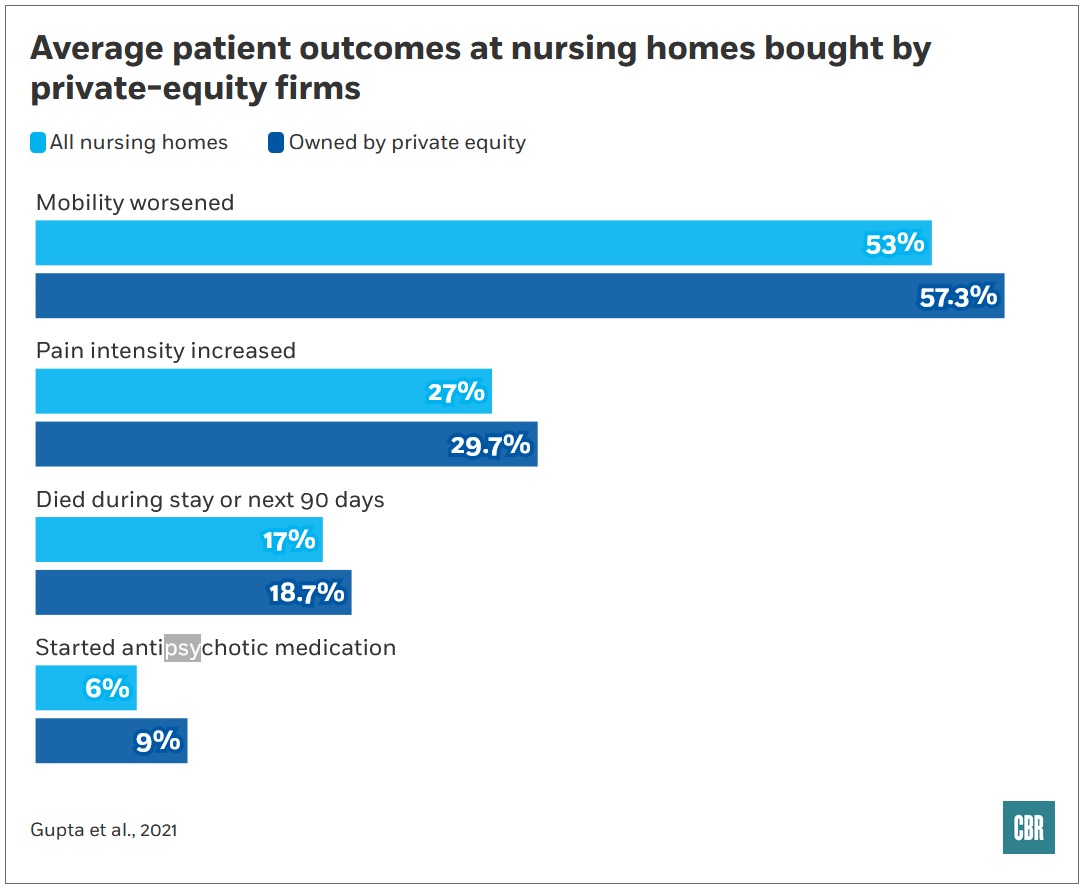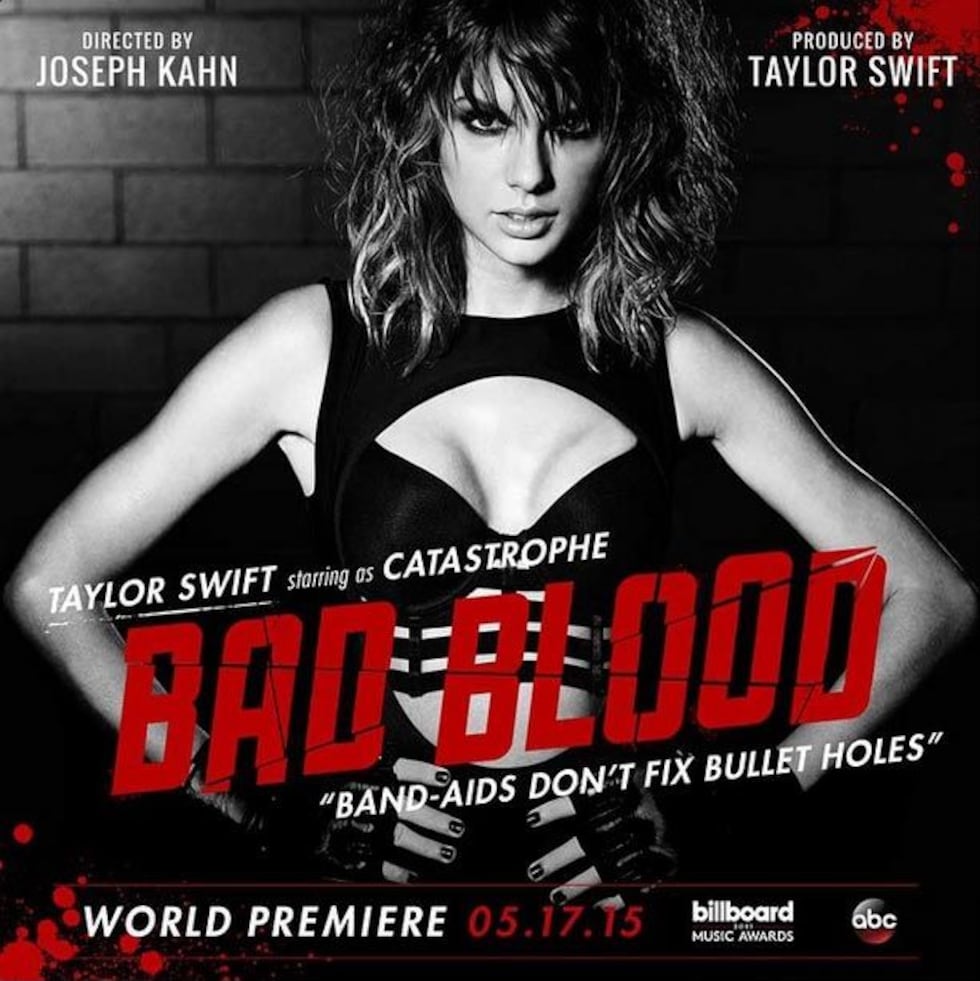Estimated reading time: 3.6 months /// Save it for a long vacation or a short prison sentence.

This is a business story — don’t let anyone tell you different: about startups and corporate giants, mergers & acquisitions, innovation and risk-taking. Some folks will say it’s about the natural kingdom, the devastation of species and land, the cruelty of animals which is nothing compared with the cruelty of Man.
Others will argue that it’s about the fall of empire, the wrath of the colonized, the ravages of Western rule.
One sorry fool had the audacity to tell me – forgetting the fact that I was the one who first told him this tale – that this was a love story –
"Oh, really???" replied I, "A LOVE story? Say more, my friend!"
– about betrayal and deception, hurt and resentment, about how those closest to you can cause you the greatest pain, how being open to love will crack you open to hate, will break your body with ache.
That a new love is like a journey to a faraway country.
And that one day, you may get on a plane, and find out, just as you land, that the country you had been traveling to,
for which you had packed all your belongings,
and emptied out all your heart,
and poured in all your soul,
that this country you had been so keen to discover, no longer exists.
And as you wander the airport in a coma of agony,
swamped with grief,
stiff with shock,
gripping a passport that could take you anywhere but where you wanted to go,
listening to announcements for everywhere except where you wanted to be,
you may wonder if this country –
and the love, or the lover, that brought you there –
screw that: ex-love, ex-lover, ex- to all that –
ever even ex-isted at all.
"Hey, Dude, I’m really sorry, and I’m not sure what’s going on here, but what the fuck? Are we still talking about the same story?
About startups???"
I could give you 99 more examples of 99 more people who each saw something completely different in the piece.
This one insists it’s about corruption and failed governance.
That one believes it’s about bad Botox.
Another one whispers – though who’s really listening? – that it’s about the distortions of capitalism: how the modern American MBA has perfected to a science the art of greed, and picked off every morsel of meat from the body of this once-great colossus we called America –
$ickened the kids, $ickened the air, $ickened the schools,
de$troyed the crops, de$troyed the care, de$troyed the news…
leaving the rest of us to fight – and to fight one another – for the bones of a bled-out behemoth.
There’s really only 1 way to settle this debate, of course, which is by telling you the story, exactly as it happened which is exactly what I will set out to do, and so we begin…
Once upon a time, in deepest, darkest Africa, or maybe it was wettest, wildest Amazonia, or perhaps Silicon Valley or just good ol’ Corporate America, there lived a small animal: we’ll call this wee thing Baby… Baby Startup.
Baby Startup tried to make its way wherever it was – the savanna, the bush, the brush, the abyss. It contended with the elements – harshest heat, fiercest wind, ceaseless rain, merciless sun. It did battle with other animals; it struggled, strived, stumbled, then finally it succeeded, just barely, to fend for itself in this most punishing environment.
One day, a much larger beast – which had been keeping its eye on Baby Startup – came along. This beast – let’s call it Mega Corp – bent down, grabbed Baby Startup, and did the most unexpected thing: it petted the soft, furry head of this darling little creature, and placed the animal sweetly in its lap.
“You’ve impressed me Baby Startup. We could really use a fierce little company like yours. Would you consider joining the Mega Corp Family? Come to our headquarters for a chat, will you?”
Baby Startup was scared, but also excited.
What would it be like to go to New York?
or to San Francisco?
to Nashville or Atlanta?
to Dallas or Cincinnati?
What exactly was Cincinatti? a food, a place, or a disease?
But there was no need to be afraid.
For when Baby Startup arrived at Mega Corp’s offices, after 3 moons had passed, a feast was awaiting. And what a celebration! Even for animals, it was a wild party…
 The Cincinnati Bridge. What exactly was Cincinnati? Baby Startup was not sure.
The Cincinnati Bridge. What exactly was Cincinnati? Baby Startup was not sure.
There was much talking, and much licking of the paws, and even the drinking of a strange potion — an I.P.A. by Burial Beer called Surf Wax — that Baby Startup hated a little and liked a lot : ).
In the end, Mega Corp made Baby Startup an offer, an offer that would give this fragile little thing what it had always needed: shelter, stability, succor from the predators all about. Most importantly, it would give Baby Startup relief – relief from that greatest of demons to all who are starting out: the demons of self-doubt.
“Finally…” thought Baby Startup, face fluorescent with joy, brimming with the granitic confidence that the beast’s corporate blessing had installed in the baby’s entrepreneurial soul.
“…finally, someone – and someone big! – sees value in our tiny company with its mighty mission. Yes, of course we will join you, Mega Corp. This is the lifeline we’ve been building towards. We are happy to build it with you.”
When the rainy season had passed, and the land was dry, and it was again safe to journey long distances, and the sun was not so hot as to make the voyage perilous,
and the venture capitalists – vultures! – had collected of their investments,
and the lawyers – locusts!
and the consultants – cockroaches!
and the MBAs – cocky little maggots!
had eaten plentifully of the advisory fees which hung like fruit from the branches of the M&A trees…
Baby Startup headed west – towards its new home with Mega Corp.
& the consultants – cockroaches!
& the MBAs – maggots!
ate plentifully of the fruit that hung from the M&A trees…
All was well – at first.
But just when Baby Startup had begun to breathe, had begun to believe it could exhale and expand and experiment — after all, it had its new corporate partner at its side: clearing the obstacles ahead, and watching for terrors behind —
that was precisely the moment when Mega Corp pounced... and devoured the precious little thing it had once rescued, killing the startup and, with it, the magic it contained that made the golden product, that once upon a time had been so coveted, and once long-ago had gleamed so brightly.
“Life,” the British philosopher Thomas Hobbes once wrote in his 1651 treatise Leviathan, “in the state of nature, [...] is nasty, brutish, and short..”
But if you’re a startup that's just been acquired by an industry giant, you may be discovering – sometimes soon, but oftentimes much too late – that life for your company, post-acquisition, is nastier, more brutish, and shorter than you’d ever imagined.
 Frontispiece of Leviathan, Thomas Hobbes' epic treatise on society & human nature published in 1651.
Frontispiece of Leviathan, Thomas Hobbes' epic treatise on society & human nature published in 1651.
And that, right there, is the problem, isn’t it?
How many of us can imagine what it’s like for our business to be acquired?
No one – not Shakespeare or Sheridan, Dante or Dostoevsky, Adichie or Achebe, Rilke or Rumi or even our homeboy Rimbaud – has written about acquisitions.
Our modern musicians, gifted though they may be, have done no better: greats like Paul McCartney and Paul Simon, Bob Dylan and Bob Marley, Joni Mitchell and Johnny Cash, and more names like Lauryn Hill and Nas, J.Cole and James Taylor, Bill Withers and Billy Joel, even the virtuosos behind “The Macarena” – none has sought to immortalize the acquisition in song.
It’s really humanity’s loss.
Because a business acquisition is as close to a romantic saga as you can get – without having to pay hush money to anyone.
When two companies love each other so much, they decide to conduct a merger or an acquisition. They call in the outsiders to seek their blessing: first, the lawyers, who feel up both parties to see how much money can be extracted from this coupling. And then after threats, lawsuits, extortions, leaks, firings, fear and loathing, two companies finally become one. Does it get any more erotic than that?
Ask any entrepreneur: an acquisition is a kind of business crush-turned-affair, a sort of corporate lovemaking where the spreadsheet is the condom, and not everyone agrees on whether it should be used. Sometimes one partner is ready to merge uncovered: "Fuck the figures, darling; let’s get into business together! If you loved me, you’d trust me. Now put that document away; it makes me uncomfortable..”
Sometimes one partner insists there is no hookup until the numbers are reviewed carefully, painstakingly, leeching the liaison of all its passion: “I’m not doing this to protect myself, I'm also protecting you, my dear.”
As with any love affair, the experience is half-dream and half-heartache, a noose and a kite, a new beginning and a bittersweet end.
half-dream and half-heartache, a noose and a kite,
a new beginning and a bittersweet end.
No one will deny the perks for the startup getting acquired: a higher salary (or a salary, period! after years of penury and self-sacrifice); a broader distribution network; bigger R&D budgets; more generous payment terms; larger facilities; and of course, the expertise, clout, and maneuvering that come from being allied with a major player in the industry.
But what about the pitfalls?
What happens when the acquisition is enacted, not to help you, but to harm – and even destroy – you?
No one is more competitive than a titan; how do you think they got where they are?
If you have something they want — a creative genius, brilliant writers, top engineers, skilled scientists, a cash cow, a catalog of popular music or art, a device, a technology, a treatment, a cream, an app — they will do all that is legally necessary to obtain it.
And if they simply don’t want your company to exist?
Because they see you as a threat?
Why... they’ll acquire you, just to kill you or your product off.
Sounds beastly, right?
Wrong!
Don't insult the animals, my friend; these are the machinations of Men...
It's estimated that some 6% of acquisitions are killer acquisitions, what we term acquisitions whose sole purpose is to kill off the company being acquired.
Killer Acquisitions – let’s call them KACQUIs for short (pronounced like khakis) – affect every sector: from fashion to gaming to engineering, but they are notorious within tech and pharma.
Award-winning business professors Colleen Cunningham, Florian Ederer, & Song Ma documented the phenomenon in an elegantly-argued, standout paper for the University of Chicago's Journal of Political Economy.
 UChicago's Journal of Political Economy. So good, it comes in Tiffany blue.
UChicago's Journal of Political Economy. So good, it comes in Tiffany blue.
Cunningham, who's been honored by Thinkers50 as 1 of 30 up-and-coming business theorists to watch, and who previously worked at London Business School, along with Ederer, formerly at Yale, & Ma, currently at Yale School of Management where they vacuumed up prizes for their scholarship and teaching – studied acquisition activity in the pharmaceutical industry.
They reviewed over 16,000 different drugs in development over a 20-year period (Impressive...)
and made a startling discovery: the same drugs that treat plaque psoriasis could also be used to cure depression, erectile dysfunction, and whooping cough.
Ok, Ok… wrong paper! That is NOT what was observed!
The three professors discovered a most unlikely thing:
Big companies were buying up small companies – not with the intent of creation or innovation – but in the simple pursuit of destruction.
The thrust of their argument is simple but deadly:
when an established firm feels threatened by a startup – a startup they think might be a future competitor,
the established firm will acquire the startup – just to destroy it.
(This type of competition between established firms and the upstarts that may take them over, is called nascent competition. It is laid out in a University of Pennsylvania Law Review article written by noted legal scholars C. Scott Hemphill, of NYU Law School, & Tim Wu of Columbia Law School.)
the established firm will acquire the startup – just to destroy it.
Think back to Mega Corp and Baby Startup.
Suppose that Mega Corp is a giant pharmaceutical company with a pain medication currently on the market. And Baby Startup is a young biotech firm trying to make its own painkiller.
If Baby Startup develops a new pain medication that is as good as Mega Corp’s, this will reduce Mega Corp’s profits a little.
(Because now, consumers have 1 more option to choose from).
If Baby Startup develops a new pain medication that is better than Mega Corp’s, this will reduce Mega Corp’s profits a lot.
(Because now consumers will choose Baby Startup’s offering automatically).
Mega Corp knows its priorities: profits first, then patients. (Duh...)
Duh...
So it sets out to acquire Baby Startup, who might potentially interfere with those profits (“Hey Baby, I notice that we’re both investigating similar drugs; wanna chat?"). Baby Startup – underpaid, underslept, underfunded, working out of a university lab where it spends half its time applying for thousand-dollar research grants to do science that requires millions – is, of course, eager to talk. (Any wonder why Jeffrey Ep$tein, with his deep pockets and wealthy connections, was able to cozy up to so many scientists and academics? but I digress…).
Discussions are held. A deal is signed. Welcome to Mega Corp, Baby Startup! Here’s your company t-shirt! (that doesn’t fit, by the way)
As soon as Baby Startup is acquired, Mega Corp puts an end to their project. And the promising pain medication that Baby Startup was working on will never see the light of day...
do that? you might ask.
Shouldn’t a pharmaceutical company be in the business of health?
Would Big Pharma really impede the advance of medicine and science, curtail the wellbeing of the sick and suffering, just to protect its profit$???
I don’t know; is water wet?
Consider this: last year, the top 3 pharmaceutical companies in the world based on sales — Johnson & Johnson, Merck, and Roche — generated combined revenues of $200 billion.
The year before that, in 2022, Pfizer became the 1st pharmaceutical company in history to make $100 billion, in a single year. (You can probably guess why... Hint: it rhymes with Rovid-19) .
Stated differently, in the COVID era, Pfizer was making roughly $1billion in revenue EVERY 3 DAYS. And Pfizer’s peers? They were pulling in the same amount in about a week.
(And you thought Jay-Z was the only billionaire who ever dealt drugs…)
Post-COVID, Pfizer's revenue has been cut in half – to ONLY $58B, putting it at #4 globally – but no major company should be crying poverty.
In 2023, the top 10 companies –
half of which are American,
the other half European (2 Swiss, 1 French, 1 British, and 1 British-Swedish)
sold $543 billion worth of drugs.
That's a $hitload of medication.
And you know what's crazy? All those drugs may be doing you more bad than good.
What could you do with $543 billion instead?
Probably create an entirely new species of disease-free, happy, healthy human beings.
Shhh... don't give Elon ideas : ).

British doctor and historian, James Le Fanu, thinks we are all taking too many pills. FACTS.
At this point, many of you are surely thinking: Big Pharma is such a greedy, amoral industry!
How do I get in???
Well it’s not such simple work.
Pharmaceutical executives are juggling several parameters: risk, regulation, investment, innovation, time, costs, and competition.
Developing a drug, at least for the U.S market, is a long-term, high-risk, high-tech venture that requires buckets of brainpower, top-notch facilities, and Saudi-levels of cash.
Analysts estimate, that on average, it costs between $800 million to $2 billion, over roughly 10 years, to develop one new drug. Just one.
And after you’ve developed that one drug in the lab, it still has a 90% chance of failing in human beings. There are clinical trials that must be conducted: 3 different rounds of extensive testing on multiple groups of humans – some healthy, some sick, some with the condition, some without.
These tests are the feverdream of a demon-crossed scientist: expensive, lengthy, hard to coordinate, with each phase of testing sometimes requiring additional tests – biospies, screenings, blood scans – all of which, of course, yield additional results, which then have to be meticulously documented and analyzed. It’s a necessary evil to ensure the safety and effectiveness of a drug, and to advance science for all humankind.
The pharmaceutical companies (and their backers) need to recoup their investments. They cannot afford to f* things up.They do not want risks; they do not want threats.
The biggest threat to their fortunes is a newcomer in the form of Baby Startup.
You’re calling my Baby a threat?
Yes, says Big Pharma.
Here’s why. It comes back to money.
Doesn’t it alway$?
Helping Baby Startup – or any biotech team – develop its drug can require a billion-dollar commitment. At the end of that development, the drug still has to be tested on human beings, and there’s no guarantee what that testing will reveal. Is it worth it to spend $1billion, over 10 years, for what might be a smashing success, or a total failure?
If Baby Startup partners with a competitor firm, they might develop a good drug; they might develop a great drug; they might develop no drug at all.
2 of those 3 options are bad news for Mega Corp.
Mega Corp doesn’t want a competitor product; it already has its own drug on the market.
The millions of dollars spent promoting their own drug to doctors and the millions more spent assaulting every inch of American advertising space with annoying-ass commercials are STILL cheaper than the billion(s) required to develop a new, better treatment – treatments that could banish some of our most prevalent diseases and concerns.
And what’s cheapest of all?
Buying off a team of (potentially) competing scientists and putting them out to pasture.
For a small, hardworking crew of biochem PhDs, a $10M offer is a king’s ransom. For Mega Corp, it’s a total joke: roughly the 1-day revenue for a drug at the lower end of the top 50 list.
And what a list!
If time permits, dear Reader, do have a look at these top-selling drugs, will you? Now, I say this as someone who loves foreign names and has one myself, but Where in the hell do these pharmaceutical names come from?
Here's a mini-fable for the curious... The uncurious (or the focused) may skip it and continue with the story at hand.
 What country or culture would produce such exotic names? I'm low-key fascinated...
What country or culture would produce such exotic names? I'm low-key fascinated...
Mega Corp already has its own drug on the shelves. And after the hell it went through to get it to market – years of research, years of testing, millions or billions of dollars spent – Mega Corp doesn’t need any more stresses. Or competitors.
Look through the portfolio of Big Pharma.
Do you know what category of medicine they devote most of their energy to? Therapies to treat cancer. I know, I know: you wouldn’t think so based on the constant ads in America for eczema, weight-loss, and dry eye syndrome.
Over the past 50 years, cancer-treating drugs have been the topmost focus of pharmaceutical and biotech companies, accounting for 16% of all drugs in development.
But guess what? Those cancer treatments, much like cancer itself, will break your heart in a thousand pieces. You may end up with a cancer drug that works great in the lab – but not when it’s tested in human beings, or a cancer drug that works so well, it destroys the cancer it was targeting, along with the poor human being that was carrying it.
Just imagine the number of people who have gone to the grave hoping that the cure that couldn’t save them may someday save you or your loved ones – loved ones who are dying and desperate for any treatment they can try – even a treatment that may cost them their life.
Shit just got real, right?
Or competitors.
So put yourself back in the shoes of the pharma exec.
They finally have a drug that’s been approved by the FDA and it’s finally allowed to be sold on the market. And they’re going to make for damn sure it stays there.
So what if their pill prevents a “disease” that no doctor has heard of?
So with if this disease was invented 2 minutes ago by the MBAs in their Marketing department?
And so what if the side effects of this
“revolutionary drug” include diarrhea, permanent vision loss, impotence, bloating, foot-and-mouth disease, halitosis, and Jamaican-accented hallucinations (“Ya betta run, before me catch you, Elmo!”)?
The FDA said it was safe, and if the people want better treatments, let them cough up a billion dollars and see how that goes...
The peasants have money for Netflix, don't they?
But how many of them would spare a farthing to fund research for new drugs and therapies?
That’s Big Pharma’s bill to pay, and they don’t play when there’s billions on the line.
By acquiring Baby Startup and then getting rid of it, Mega Corp eliminates – cheaply, quickly, quietly – a potential competitive threat.
Et voilà.
Killer acquisitions are, of course, not unique to Big Pharma or Silicon Valley. Companies & individuals in all industries – including creative ones – agree to deals that inadvertently kill their projects – or prospects.
In the 1990's and 2000's, some of the world’s most successful fashion designers – Calvin Klein, Kate Spade, Jil Sander, Hervé Léger, Roland Mouret, and more– lost the rights to their own name after selling part, or all of their labels, to investors.
In music, one of the biggest names of our time, American singer-songwriter, Taylor Swift publicly tussled with her former label when her catalog of songs and artistry was sold to a new owner, Scooter Braun (who secured the purchase with the help of a private equity group).
Swift had been asking to buy the masters to her songs (something rap mogul, Jay-Z, has wisely advised all artists to do). And she bristled at the change of ownership and the subsequent restrictions on the use of her own music. Braun, and the previous label head, Scott Borchetta, disputed Swift's account, saying they'd made her an offer to purchase her masters, which she’d declined.
Swift deemed both their offer and their tactics "unacceptable," and decided to re-record her old songs, a suggestion first floated by fellow pop star, Kelly Clarkson, who knows a thing or 2 about
courtroom battles and making music history.
(Clarkson’s very 1st music single climbed from #52 to #1 on the Billboard charts in the space of a week, breaking a 40-year old record for the fastest rise of a song, set by The Beatles with their hit “Can’t Buy Me Love.” Stunningly, that record has since been broken 6 times – 2 of those times by Clarkson, once by Maroon 5, once by Britney Spears, and 2 times by Atlanta rapper T.I. – yes, that T.I. )
T.I., like Kelly Clarkson, has broken records – twice for the fastest rise of a song to #1, with his hits "Whatever you Like," (from #71 on the Billboard Charts to #1 in a week), and "Live your Life" featuring Rihanna (from #80 to #1 in a week). What is the link to Killer acquisitions? No *#&% clue.
 Tweet of genius. Kelly Clarkson's brilliant advice to Taylor Swift amid a fight over masters.
Tweet of genius. Kelly Clarkson's brilliant advice to Taylor Swift amid a fight over masters.
Whether you follow music or not, what followed was a masterclass in creative, legal, and business bravura.
Taylor Swift released entirely new albums, after re-recording new versions of her old songs.
These old-new songs (or new-old songs) – surely an innovation in themselves – promptly took the #1 spot on music charts and streaming platforms, and now displace the albums and songs released by Swift’s former label.
Similarly, other creators have seized control of their own name and output: Greek-Belgian fashion legend, Diane von Furstenberg, inventor of the iconic wrap dress, purchased back the rights to her name, and relaunched her fashion line to greater acclaim than under the previous owners.
But the story isn't always so pretty.
Years after the fact, entrepreneurs still smart over the deals that ended – or nearly ended – their companies (or their careers).
In music, talented artists may sign record deals with major labels who release not a drop of their music to the public, all the while refusing to release the artist from their contract (Check out this, this, and Aylin Zafar's still-accurate Buzzfeed explainer).
It's no accident that the word 'slavery' comes up often when musicians gripe about their industry in private. Listen to the song "Thieves in the Night" by rapper-philosophers Mos Def & Talib Kweli. The duo takes aim at the exploitative music business, as well as other systems in our midst robbing us of various freedoms – personal, racial, financial, creative.

Incisive, prescient, poetic.
Mos Def's & Talib Kweli's 1998 gem which featured "Thieves in the Night."
It's not just music.
In fashion, designers can wander the wilderness for years, desperately scraping the cash to claw their old name back, or trying in vain to establish, nearly from scratch, a new brand name altogether. In Silicon Valley, founders wonder publically (and seethe privately) about what the technological landscape might look like today had their inventions been allowed to survive.
In professional sports, players and fans lament the ghastly decision-making of greedy or inept owners (or greedy AND inept owners if you’re in New York…) who ruin the teams they were supposed to be running.
Just this month, the NFL, in its infinite wisdom, announced that they will begin allowing private equity groups to own professional football teams.
So let's talk P.E. ownership for a bit, shall we?
When private equity firms began acquiring nursing homes, patient outcomes worsened: mortality rates increased, nurse availability decreased, use of anti-psychotic medication went up by 50%.
And, if anyone from the government happens to be reading this: the bills that you pay suddenly ballooned.

These were the findings of business scholars Sabrina Howell (NYU Stern), Abhinav Gupta (NYU Stern), Atul Gupta (Wharton), and Constantine Yannelis (UChicago). They analyzed 1,700 Private equity purchases of nursing homes from 2004 to 2015. (What could go wrong when Wall Street MDs – Managing Directors – call the shots instead of real-life MDs – Medical Doctors?)
The researchers determined that over that decade-long period, an extra 20,000 nursing home residents had died in nursing homes acquired by Private Equity owners vs. nursing homes run by non-PE owners. That's an extra 1,300 deaths per year in a PE-run "home".
How many P.E. execs would place their loved ones in a facility that their firm had taken over?
And yet, that's where your grandma, your pa, your sister, your spouse, or your son may be right now — drugged up, depressed, and dying of neglect in a poorly run, care-deprived, money-minded facility.
It may not fit the formal definition of a killer acquisition, but it for damn sure, feels like one.
[Technically], that's not considered a killer acquisition, but it damn sure feels like one.
Talk about bad blood...
It's one thing for bad ownership to infect music or fashion or sports, but Healthcare is no ballgame.
A killer acquisition, in biotech or pharma, doesn't just thwart creativity or athleticism or design or innovation: it can literally be deadly.
When a bigger, established firm acquires a small, healthcare startup, and then stops them from continuing their work, it’s not just the startup that gets robbed: society loses out on a potentially life-saving treatment, drug or device.
Talk about bad blood…

Taylor Swift's re-recorded album, Red (Taylor's Version) which, of course, went straight to #1. Was Scooter Braun's purchase of her music catalog an example of a KACQUI?

And bad dreams...
Baby Startup couldn’t stop comparing life before and life after the acquisition. Working under a corporate owner felt like suffocation, like being killed softly.
And it made no sense either: Baby Startup had more resources now than ever, and yet, somehow, the product they made today was crappier than it had ever been before. And it had never been crappy –until they got acquired.
Bafflingly, Mega Corp’s CEO didn’t seem to notice the decline in quality, and was thrilled with Baby Startup and Baby Startup’s CEO. On his once-a-month walkabouts through the team’s spanking-new offices, the CEO of Mega Corp would rave contentedly to whoever would listen: ‘Things are buzzing since we acquired Baby Startup! Look how busy everyone is.”
Meanwhile Baby Startup’s CEO, who was now also an Executive VP at Mega Corp, could take one look at her employees (a team she knew better than they knew themselves) and see in their eyes that the dream had died...

She could recollect with fondness those early days in their scruffy workspace, when she was the CEO and the Head of Marketing and the Janitor-in-chief; when she was able to rally her young team around a crazy vision; the way she negotiated, bartered, sometimes pleaded with suppliers who didn’t know who the hell she was, didn’t really care, and didn’t return her calls...
the skill with which her team learned to make do with less, never wasting a thing, sharing desk space and passwords and accounts (sorry Salesforce!); how she used to know each of her customers by name (do you remember that very first order?); the late-night bus trips and dirt-cheap plane rides to faraway conventions (thank God for Spirit Airlines) where she’d make the roundtrip in a day, leaving at dawn, returning at 1, 2, 3AM because she could ill afford an overnight stay at the hotel with the other attendees...
her gratitude when one of the hotel housekeepers would lend her an iron to use (“But, Isn’t there one in your suite?”) so she could straighten her outfit in the hotel lobby bathroom – ashamed, wrinkled, rushed: an executive doing the grooming she wished she could be doing in a room; the way she’d learned to strike just the right tone when asking for help – that strange mix of entitlement and desperation – because she’d realized, early on, that no one gets help more easily than a person who doesn’t look like they need help at all...
the journalist who'd written that first article about their company – an article she’d e-mailed to everyone she knew, even with the typo in her name (they spelled it wrong, twice! and still she was ecstatic!); how her team fought like the devil to put out the best product they could – never skimping on the quality, never shortchanging the customer, always vying to do even better...
the family members who supported her for months – no, it was years – when not a dollar was coming in, and her bank account – a black hole beyond the investigative abilities of anyone at NASA – remained a permanent void: always dark, always drained, always desolate; how she would read the alumni notes from her university and ask herself why she couldn’t be more like her accomplished classmates, with their graduate degrees, and their handsome husbands and their pretty wives and their cute kids named Amelia and Miles and Jackson and Sophie, and their impressive job titles that their parents could say with confidence instead of cringing when asked "So, what is ___ up to?”...
the startup showcase she had registered their company for at the very last minute, at some tiny college in Bumblefuck, Middle of America, and how they’d won 1st prize – $5,000! – which, back then, felt like $5 million, and how the team had celebrated at the lone diner in town, and how they swore that if they ever got rich – really rich – they’d come back to this small town that had given them so much hope, and screw the big cities! screw mean L.A! and screw smug New York! which gave nothing to no one, not even a shit...
the Serbian-born genius with a Southern drawl who seemed to enjoy correcting investors when they’d assume he was the CEO not her, a fellow she made C.O.O. despite his aversion to titles, a fellow who’d made her his fiancée, despite her aversion to labels, a man who could cut through any problem like a knife and bring back the sun no matter what clouds darkened her sky, a man she'd promised to marry as soon as things settled down – except they never did – and now it looked like they never would...
the bastard venture capitalists who had passed on investing – “Not the right fit for us, but circle back in a year…” and all the Joshes and Matts and Hailey VCs who came back scrambling like roaches months later when Fast Company did a story on her; the first time she took a major client out to dinner – the timing couldn’t have been more awful: she was waiting on a long overdue payment from another client, (your Q3 profits are $1.6 Billion but you can’t pay our tiny company the $40,000 you owe us!); but she couldn’t say no to this opportunity so she agreed to the dinner: it was at 1 of the most expensive spots in town – she would never have chosen it...
 Your Q3 profits are $1.6 Billion but you can’t pay our tiny company $40,000!
Your Q3 profits are $1.6 Billion but you can’t pay our tiny company $40,000!
how she had checked and rechecked her bank balance the morning of, and studied the restaurant’s menu like a holy script the night before, to ensure she could pay for whatever might be ordered; how she had nearly fainted when the client unexpectedly brought along not 1, but 2 extra salespeople who happened to be in town that night – one of them a cheery, dapper, 6’5, former athlete who ate like a human being transitioning to dinosaur, and wouldn’t stop talking or eating...
she had stopped drinking 3 years ago, but she was so angry with this handsome T-rex as she ran the math on his consumption (STOP EATING! STOP TALKING!) that she downed the Caribbean rum (160 Proof) that the boys had ordered, and it was so strong and it was so long since she’d had alcohol, she forgot everything, including the fact that she’d wanted to murder the client and his dumb-ass dinosaur visitors with their bottomless stomachs...
how by the end of the night she was smiling at T-rex –
Why did he talk so much to her? Was he being friendly? Was he being flirty? And how she thought it biologically catastrophic that a person could reach adulthood and not be able to distinguish such a fundamental thing...You’d think it would be encoded in the DNA of Homo Sapiens:
this person would like to fuck you //
this person would like to fuck you over...
this person would like to fuck you // this person would like to fuck you over.
how she’d woken up the following morning with a titanic hangover / hellover / hangache / headache: it felt like a bomb un-buried, exploding and re-exploding just under a fold at the rim of an unreachable corner of her brain; how she'd panicked seeing 4 missed calls from the restaurant, including a vague voicemail about her credit card – obviously it had been declined, she thought; she called back the restaurant – sweating – only to be told that T-rex had paid the entire bill for their dinner, and tipped the staff so generously that the manager wanted to thank her personally: the reservation had been made with her credit card and contact info, so they wanted to let her know, she would always have a table at La Peau du Q – no reservations required...
the nights, laying in bed, when she thought she was having a stroke, asking herself how the hell she’d cover payroll, and what she could possibly say to men and women who had given up so much – some of you have advanced degrees! and families to feed! – to work for so little in pursuit of her big dream...
the day she screamed when she saw an e-mail from Mega Corp in her inbox – an e-mail that led to an offer to buy Baby Startup, an offer she knew would change them forever… but not like this...
What a mistake it had been to sell the company to Mega Corp.
Three years into the acquisition, it was painfully apparent – to everyone, except the parent company – that Baby Startup would have been better off on its own.
Mega Corp was tinkering the product to death, countermanding Baby Startup’s process with 1 annoying directive after the other: the materials were getting cheaper; the formulations were getting weaker; the updates were getting fewer; the writing was becoming blander, the customers were complaining and cutting back and some were just leaving altogether.
The COO – her own fiancé! – had reached breaking point after yet another “cost-saving” implementation ordered by Corporate, a change that he wrote, in his resignation letter (a letter she had refused to read for almost 2 weeks) would endanger the customer. It had been a brutal month and a half since he’d left. Some days, she was ready to leave too.
She was ready to leave, too.
Is this why they’d escaped the hustle of the jungle? To make mediocrity in an office?
“Be careful what you wish for,” thought Baby Startup's CEO, popping another pill for her never-ending headache.
She swore that their stunning new office – a hyper-sleek, starchitect-designed, mini-Las Vegas of LED lights with oversized TV screens blaring CNBC all day – “Buy MegaCorp stock!” – was giving her migraines.
Why didn’t the windows open?
Why were the plants fake?
Why would you plant your corporate headquarters in the middle of plush downtown – with jaw-dropping views onto the city and the sea beyond it – if all the people inside the building (more and more strangers she barely recognized) were going to be chained to unassigned, unprivate, uncomfortable desks – where they would face gray-beige walls just as gray and grim as their faces?

Their state-of-the-art, hyper-sleek, starchitect-designed new headquarters with everything you needed – except natural light, fresh air, and greenery...
"Be careful what you wish for," Baby Startup's CEO repeated to herself, "you just might get it.”
The problem with mergers & acquisitions, as with any relationship, is that you really don’t know what you’re getting into – and who you’re getting into it with – until after the ink is dry.
Sucks, right?
A merger or acquisition – depending on the industry, depending on the size, stage, sector, history, and finances of the companies involved – can be the business equivalent of a marriage or an adoption.
Do you know whether an adoption will go well?
Can you tell whether a marriage will be good? whether it will last?
No one states, at least not publicly, that an acquisition is going badly.
Just like no one posts on Facebook that their marriage is in trouble, and that they loathe their spouse with every molecule of their being. No no…
One day you’re uploading, on Instagram, a picture of you, arms around your husband, headed to brunch after a morning of Bible study, both decked out in your Sunday finery, mile-wide smiles revealing bleached-white teeth that are visible from the Moon:
"I am SO #blessed to have this hunk right here. 
Thank you, Tommy, for being my best friend and the best partner a girl could ask for: I couldn’t do life without you!!!”
The very next day, this time on Facebook, a video appears of a pickup truck – is that Tommy’s truck? – engulfed in flames – No! not the new Dodge RAM! and it was an EV too! – with all of Tommy’s belongings burning in the back.
 She's a beauty... WAS a beauty. Tommy's (former) truck. And an E.V., too? Shame...
She's a beauty... WAS a beauty. Tommy's (former) truck. And an E.V., too? Shame...
The caption, today, is a fraction less friendly:
“Thomas K Rowcher: I’d rather do life in prison than spend another minute with your cheating ass!”
Uh oh...
“You thought you could fuck around??? Well now you found out! Ladies, this lying, creeping, selfish son of a bitch is all yours… Deuces!”
You can do all the due diligence in the world: spend as much time dating, researching, observing the parent- or the partner-to-be…
"Their other kids look happy and healthy; it must be a good household."
"He keeps lavishing her with gifts; it’s obviously love."
But until that contract is signed and you're officially married or adopted or whatever the new legal status may be, you have no idea how a relationship may turn out. It’s the same in business, with mergers and acquisitions.
M&A, much like marriage, is a gamble. And sometimes, you may find out that what you've gotten into looks nothing like—and indeed, is far worse – than what you’d expected.
Companies, of course, don't go into acquisitions blindly. In 2023, according to data provider Statista, there were $2.8 trillions worth of M&A transactions, globally (and that's the lowest activity in a decade).
Billions are spent yearly – $40-50 billion, roughly – on lawyers, consultants, analysts, and investment bankers whose sole role is to poke and prod to see if a business union would make sense.
Mostly they focus on price:
Are we overpaying? worries Mega Corp.
Are we undervalued? wonders Baby Startup.
But let's be real: the savage beauty of a killer acquisition is that the beast never tells you (or your lawyers, or your investors) about its nefarious plans – until after the deal is done.
Some acquirers massacre a product immediately: ousting the founding team, or sending them to work on a different project altogether.
Others kill their acquisitions softly:
disrupting the culture that helped build a great product, rearranging the chain of command so that it's harder to get things completed, alienating the founders such that they barely want to work on a vision they themselves created, murdering the talent with useless meetings that were never held back when they were independent startups, starving teams of the capital they need to grow the product as had been promised.
There are thousands of businesses, maybe more, with once-superb products that have withered post-acquisition. (If anyone collects data on the state of startups after an acquisition, let me know, please; I’d love to share It here.).
Writing for Gizmodo, Tech editor, Mat Honan captured in picture-perfect detail the decline of Flickr, the once-dominant photo-sharing site Flickr, which was bought by Yahoo. “Yahoo was a good fit, initially,” said Flickr’s co-founder Caterina Fake, a serial entrepreneur and tech luminary.*
Oh, the tales entrepreneurs could tell about the word ‘Initially!’
Likewise, journalist, Rob Pegoraro, in a piece for Fast Company, chronicled his dashed hopes about former tech darling, Mint, after it was acquired by Intuit. Mint’s former CEO, the mediagenic Aaron Patzer, who now heads up a groundbreaking healthcare start up called Vital ER, speaks for many a founder when he says, diplomatically, that Mint, his baby, which he sold for $170Million, “could be doing much more.”
 Rob Pegoraro, a Mint fan, documents its seeming decay since being acquired.
Rob Pegoraro, a Mint fan, documents its seeming decay since being acquired.
The stories of both Flickr and Mint – their dazzling ascent, their cutting-edge ambition, and their rapid acquisitions – were some of the biggest happenings in Tech in the 2000s. Flickr influenced Instagram, Facebook, Dropbox, among many other companies; Mint set off the explosion of fintech startups that followed.
But who follows up on life after the merger or the acquisition?
After the guests have left, the band has packed up, the wedding cake is packed away, and the champagne is all gone?
Where do startups go when they die?
Where do they go when they’re dying?
Maybe there’s a secret Valley of Silica, out there, that buries their weary bones...
Whether the killing is sudden or soft, there needs to be a way to protect smaller companies being acquired by bigger ones. (And if you can believe it, I also think that big companies doing the acquiring sometimes need protections too.)
Enter the soft merger.
Look through any law or business textbook written in the past century. There’s not a single entry on soft mergers. But you don’t have to be a lawyer or a businessperson to guess what a soft merger might be.
Go ahead: what do you think it means?
If you gathered everyone's definitions, I'm guessing they'd all converge.
In my mind, a soft merger is a loose or unofficial partnership between 2 or more companies.
If you know what a traditional merger is (more or less), then it’s not too hard to picture a soft merger: think of it as a merger, but demure : )

Think of a soft merger like a traditional merger,
but "very demure, very mindful." (Shoutout to Jools Lebron : )
The concept of the soft merger first came to me on the first day of a business trip I was fortunate to take as a first year MBA. I spent my North American winter in the South Pacific summer meeting with, talking to, learning from and working alongside entrepreneurs and venture capitalists on the other side of the world.
The experience turned my ideas inside out.
My first week down there did more to disrupt my notions about business, innovation, ambition, ingenuity, collaboration, humility than the 2 years I spent at business school, and the 10 years since.
And that’s not an indictment of the MBA. It's a reminder of the serendipity of life: you never know who or what is going to give you your education. I’m grateful for all I've been taught – in and outside the classroom.
I was sure that there was a serious scholar somewhere who’d written at length about the soft merger. Or that I'd find the concept in an ancient business or law course. But it’s been over a decade since that tour down under and nothing’s turned up.
No soft mergers officially in the business books.
None in the law tomes.
So I decided to put pen to paper and come up with my own.
There are Horizontal Soft Mergers, and Magic-Driven Soft Mergers, and Soft Mergers that are Employee-led.
There are Geographic Soft Mergers and Ego-driven Soft Mergers and soft mergers that are Transactional.
But the soft merger I’m introducing here is the Protective Soft Merger.
It seems strange to let this one out of the gate first, seeing as it’s so dissimilar from the rest of the Soft Merger family.
I’m an optimist, and the soft merger inherits some of that idealism, along with the sunny, positive nature of the people I encountered on the other side of the planet.
Talk, share, exchange, help, innovate, try something new:
These are the tenets of the soft merger.
The Protective Soft merger is not like that: it's a dark little monster created for a world that more of you recognize: hostile, abusive, unfair, unkind. I know the world I’d love to create and live in – a happy, kind one – but if it were all joy and innocence, there’d be no killer acquisitions, no bad owners, and I wouldn't be writing this piece.
So let’s bring this beast out to play, and see how it can help our startups.
without thinking about one of the world's most famous and gigantic startups: Facebook/Meta.
Like all the mega-startups, Facebook is constantly acquiring little startups. Their pace of acquisition is so frenetic, that, according to CB Insights, the 5 biggest tech companies of our day – Facebook (Meta), Apple, Amazon. Google (Alphabet), and Microsoft – have acquired 800 startups over the past 30 years – or basically 1 new startup every other week.
Gobbling startups is par for the course in Silicon Valley – except that Facebook's gobbles are billion-dollar bites...
What if there were a way for BOTH sides – the gobbled and the gobbling – to test out the merger before making the marriage official?
 The last member of the Soft Merger family: The Protective Soft merger
The last member of the Soft Merger family: The Protective Soft merger
And thus was born the last member of the Soft Merger family: the Protective Soft Merger.
As its name implies, the Protective Soft merger is a way to protect startups from being screwed over during an acquisition;
a mechanism for mega companies to test the waters before committing to a major purchase;
and in the case of killer acquisitions, a tool for a startup – or even a regulator – to vet whether an acquisition offer is well-intended… or whether the intent is to bring the startup in, only to then bury them.
How would a Protective Soft Merger work?
If you’re a startup or small business,
and you’re not quite sure why an acquirer’s interested in you, you would use a Protective Soft Merger to explore – cautiously – a relationship with your acquirer.
Think of the Protective Soft Merger as a dating or engagement period before deciding whether to marry (or not).
has a triple clause:
1) The Acquirer must agree to let the Acquiree continue its current (or planned) projects
2) The Acquirer must pay for the time and costs of the Acquiree’s normal (or planned) operations for the duration of the Soft Merger.
3) The Acquirer and Acquiree must agree to notify anti-trust authorities that they’ve entered into a Protective Soft Merger.
A startup needn’t invoke all 3 clauses; any 1 should be sufficient to suss out an acquisition with killer (or malicious) intent.
(That said: if you’re a Mega Corp, and the Baby Startup you’re talking to insists on enforcing all 3 clauses simultaneously, it might be you that needs protecting, not Baby Startup!)
Clause 1 is the most crucial part of the soft merger agreement.
Why is that?
Well, when an established firm is trying to stop you, what they’re really trying to stop is not you– the person, but rather the activity behind you: whatever you or your team is doing / making / producing / creating.
The first condition of the protective soft merger is that you must be permitted to continue doing whatever you were doing before the acquirer approached.
If the acquirer resists or refuses, you may have discerned their intent: maybe they’re trying to shut you down, OR maybe they’re offering you a different, better opportunity.
Whatever their reasoning, Clause 1 forces a serious discussion of the acquirer's intentions – before any deals are signed before any lawyers are involved, before any money is brought up. And that discussion should hopefully tip you off as to the acquirer’s motive.
you must be permitted to continue doing whatever you were doing before the acquirer approached [you].
Similarly, Clause 2 has a revelatory aim: Money is its own truth serum.
Introduce money into any relationship and it will tell you more about a partner – and how they feel about you – than any lofty declarations aloud or on paper.
How does Mega Corp react to the prospect of funding your current activities over the next 1-2 years?
If Mega Corp sees you as an eventual ally, then investing in you, would be the same as investing in themselves.
If Mega Corp considers you an enemy to be eliminated, they would not want to spend more than the absolute minimum on you or your projects.
More crucially, they would want you out of the way now – not 2 years down the line.
No firm, no matter how flush – not even Facebook! – would agree to pay you to continue doing something they are trying to stop.
How would you explain that to your Board???
“Beginning in Q2, we plan on funding the expansion plans of an emerging competitor.”
It would be the equivalent of Corporate Cuckoldry, no?
“Hey Baby Startup. You can bang my spouse, in my bed, while I watch (and possibly pay you, too)."
"Hey, You can bang my spouse, in my bed, while I watch (and possibly pay you, too.)"
(OVER-paying for an acquisition is sometimes an indication of a killer intent. If you do not want anyone else to acquire a promising young company (that might be a threat to you), you offer far more than the company is actually worth.
This is why the time factor matters in Clause 2. By forcing the acquirer to let you continue your activities for x number of years, you are weakening their attack – or thwarting it altogether.)
Clause 3 seizes on Thomas Wollman's sharp insight that “stealthy” (and perhaps ill-intentioned) deals tend to happen right below the FTC thresholds.
Wollmann, a Harvard PhD and acclaimed business scholar at The University of Chicago’s Booth School of Business, conducted fascinating research on Stealth Consolidation. He recently authored a paper called "How to Get Away with Merger" (what a title : ), and his findings have led the FTC to amend its approval process.
In brief, Wollmann noted that big companies get away with controversial mergers by pricing them just below the reporting level. Let's say, for example, that the FTC requires companies to alert them of any mergers whose cost exceeds $200M. The clever (crafty) acquirers would respond by pricing the acquisition below $200M, say at $199M.
And indeed, Cunningham, Ederer, and Ma observed that killer acquisitions all happened to take place just below FTC reporting levels.
Clause 3 overrides sneaky pricing ploys.
If your acquirer knows that their merger – even their soft merger – is going to be announced to anti-trust officials – REGARDLESS of the purchase price – they may back off their pursuit.
An acquirer with fair intentions would not mind this additional step.
If the acquirer’s aims are more underhanded, or if they have a pattern of silently squashing startups,
they would not want to attract anyone’s notice – least of all the attention of a government agency.

Stuntin' on these mergers. UChicago Business professor, Thomas Wollmann, studies stealth consolidation – the mergers and acquisitions that sneak past the FTC.
Other modifications and clauses are welcome.
Again, you needn’t invoke all 3 Clauses to detect a killer motive.
If you're an entrepreneur in another industry, and you have insights on (or battle scars from) detecting or preempting harmful acquisitions, I invite your thoughts, please. Likewise, if you’re a lawyer with ideas on a clear, robust, non-opaque, easy-to-understand protective soft merger contract, I humbly welcome those suggestions too.
Will the Protective Soft Merger save startups from all KACQUIs, all killer acquisitions? I wish, but probably not.
I wish, but probably not.
Last April, Aaron Tilley, of the Wall Street Journal, wrote a scintillating exposé of the American tech giant, Apple, and its business practices ("When Apple Comes Calling, ‘It’s the Kiss of Death.’" )
Tilley reported that Apple was able to steal the ideas of startups without even acquiring them, simply by holding preliminary talks or visiting their facilities.

When Apple Comes Calling, It’s the Kiss of Death. - Aaron Tilley of the Wall Street Journal
Apple vehemently denied any idea theft (though who would admit to it???) and countered that it had been developing its own products independently of those mentioned in the piece.
But didn’t a certain visionary by the name of Steve Jobs, Apple’s late founder and former CEO, make a famous remark about this? “We [at Apple] have always been shameless about stealing great ideas.”
The Apple doesn’t fall from the tree, huh?
The ability and temptation to copy are not unique to Apple.
Modern-day titans that operate exchanges or marketplaces – Amazon, Facebook, Salesforce, Whole Foods, Apple again – can see what upstarts are selling. They can then use that insight and data to develop, if they wish, the exact same products and sell them on their own, often for cheaper, to their immense customer bases.
(And by the way, grocery store chains do this all the time, too. If you’ve ever bought the less expensive store-brand version of something – and God knows I have – you’re capitalizing on the company’s ability to see what sells – and sell it less expensively and sometimes better-made.)
But is that wrong???
What businessperson with an “information advantage”, to quote legal scholars Hemphill and Wu, WOULDN't make use of it?
From "Nascent Competitors," published in 2020 by the University of Pennsylvania Law Review. Written by Legal scholars C. Scott Hemphill, of NYU Law School, & Tim Wu of Columbia Law School.
If you're a beast staring into the open mouth of the marketplace, do you not bite?
If you’re a small, striving businesses, with a popular product that may be ripped off, how do you keep from being bitten? or swallowed whole?
How should a startup defend itself?
• Do you report every coffee chat to the FTC?
• Insist on a Protective soft merger before anyone walks in?
• E-mail the 3 most powerful anti-trust regulators on the planet –
Lina Khan (US), Margarethe Vestager (EU), and Sarah Cardell (UK) –
if a tech mogul texts you ”Heyyyy Baby...”

Competition chiefs: Lina Khan - US (in blue blazer), Margarethe Vestager - EU (in yellow), and Sarah Cardell - UK (in patterned collar)
E-mail the 3 most powerful anti-trust regulators – Lina Khan, Margarethe Vestager, and Sarah Cardell – if a tech mogul texts you “Heyyyy Baby...” ?
It's important to be vigilant, but not militant.
The Protective Soft Merger should be used to defend, not attack.
Not every acquisition is a killer one. It would be tacky to assume that all talks lead to KACQUIs. Sometimes, companies genuinely like each other and want to work together, and want to make each other better.
Some of the best things in business (and in life) arise out of partnership, collaboration, and trust.
The Soft Merger is a means to promote more of that exchange, support, and growth — not just between similar businesses, but across different sectors, industries, countries, and even business types.
The Protective Soft merger is an outlier among its soft merger siblings: it’s paranoid, mistrustful, rigid, bureaucratic, in a family of friendly, flexible, innovative soft mergers.
The Soft merger was designed in a spirit of openness, trust, and collaboration.
The Protective Soft Merger was designed for the person who sleeps with 1 eye open.
But, after what Baby Startup – and maybe your startup – endured with Mega Corp, you must tread carefully. Especially when contending with a corporate beast.
Which brings us back to where we began this story: in the wild, lush heart of Africa where we find Baby Startup again.
Baby Startup is licking its wounds, but is already working on a newer, better, brighter idea...
“Baby Startup is back!” the animals cheer. They missed seeing Baby around.
“How was America?” they ask, “Did you bring back the Cheez-Its?”
Baby Startup missed them too, missed this gorgeous, glistening corner of the Continent.

The red earth, the blue sky, the heaven-dipped green of the gargantuan trees and plants.
The red earth, the blue sky, the heaven-dipped green of the gargantuan trees and plants.
The humidity that slaps you like a wet rag in the morning and comforts you like a warm blanket in the night.
The roar of the marketplace as a million desperate sellers compete for a million distracted buyers: DVDs? Sandals? Suya? Kola Nuts? Laptops? Prayer beads? Mangoes? Airpods? Drones?
It could be Lagos or Accra.
Dar or Nairobi.
Cairo or Kampala.
It was electric and it rivaled anything you’d see in the trading pits of New York and Chicago.
The faces of the elderly men and women, back in the village, black as shoeshine, warm as sunshine, with white smiles that could lift your spirits from across an ocean:
“Welcome home my child, how was your journey?”
In the dark, when it’s quiet, the animals trade stories – of faith and failure, love and loss, hardship and healing. They cheer Baby Startup on (“Get back out there, Baby!”), but they also issue a warning...
to beware of the men with the khakis – the trophy hunters from the West who come looking for a tiger or a rhino, a zebra or a lion, or maybe even a Baby Startup to take home with them.
It’s a jungle out there, you know?
Whoever you are, wherever you are, I wish you –
every dreamer and doer,
every thinker and tinkerer,
every artist and designer,
every athlete and entertainer,
every entrepreneur and business owner,
every Baby Startup out there who's poured blood, sweat, tears, time & talent into a venture – the very best of luck.
We mustn't let anyone destroy it, yeah?
Baby Startup is taking notes. But it takes time.
Baby Startup is not much of a writer – or a reader, or a speller, and the letters and words swim like a soup inside Baby's brain.
Still, every night, Baby Startup puts it all down on paper. Maybe some day the words will be shared with others?
The wisdom of last night’s powwow with the other animals – they talked so much! – is preserved for posterity.
Written in block letters on the top of a new page is the advice that they gave:
Whatever you do, good luck to you, Baby!
And beware of the men with the Kacquis...
Discover More
18billionaires.com - Numbers for the 99%
18billionaires is an Analytics & Finance firm,
that uses traditional tools to answer untraditional questions.
If you want thoughts on China, Netflix, AI or any other topic that gets covered 18billion times, we're sorry, you won't find it here
If you're looking for more unusual analyses and investigations, you may be in the right place. We welcome your thoughts, ideas, and comments.
OZCAR: A Calculator for Ozempic users
If you are currently using – or planning to use or just thinking about trying Ozempic or any of the new GLP drugs, run the numbers first!
Request your custom calculation to find out how much weight you can expect to lose, what you will gain back, how long it will take, and what it will cost you.
About the Author -
C.Z. Nnaemeka
C.Z. Nnaemeka is Chief Strategist @ 18billionaires.
She is a former Financial Analyst at Bridgewater, the world's largest hedge fund, and a former Political Commentator at Le Figaro .
Her last article on tech & society, remains the most-read piece in the (brief) history of the MIT Entrepreneurship Review.
She thanks you for reading (or, cough, skimming) this book...










